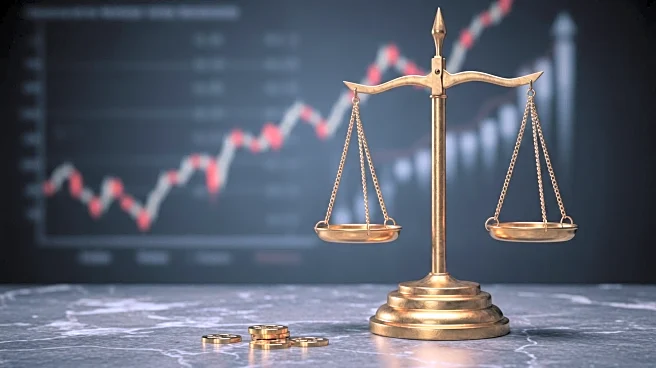What's Happening?
Goldman Sachs has come under scrutiny from President Trump for its forecast that tariff-induced inflation is set to rise. Despite a recent consumer price index report suggesting moderate inflation, economists, including those at Goldman Sachs, anticipate a significant impact from tariffs in the coming months. As pre-tariff inventories diminish and effective tariff rates increase, companies are less inclined to absorb the additional costs, which are expected to be passed on to consumers. This situation is predicted to affect consumer spending and potentially subtract 1% from GDP, according to economic analysts.
Why It's Important?
The anticipated rise in inflation due to tariffs could have widespread implications for the U.S. economy. Consumers may face higher prices, which could lead to reduced spending and impact economic growth. Businesses might struggle with increased costs, affecting profitability and potentially leading to price adjustments. The situation underscores the broader economic challenges posed by trade policies and their impact on consumer behavior and business operations. Stakeholders across industries may need to adapt to these changes, influencing market dynamics and economic forecasts.
What's Next?
As the year progresses, consumers and businesses will likely experience the effects of rising tariffs more acutely. Companies may continue to adjust prices, potentially leading to gradual inflation increases. Economic analysts and policymakers will monitor these developments closely, assessing the impact on GDP and consumer spending. The situation may prompt discussions on trade policy adjustments and strategies to mitigate inflationary pressures.










